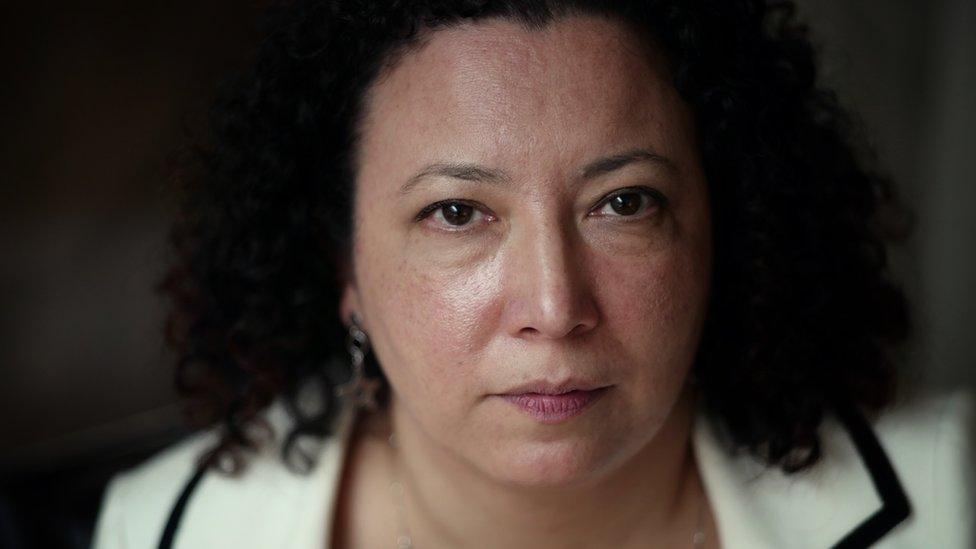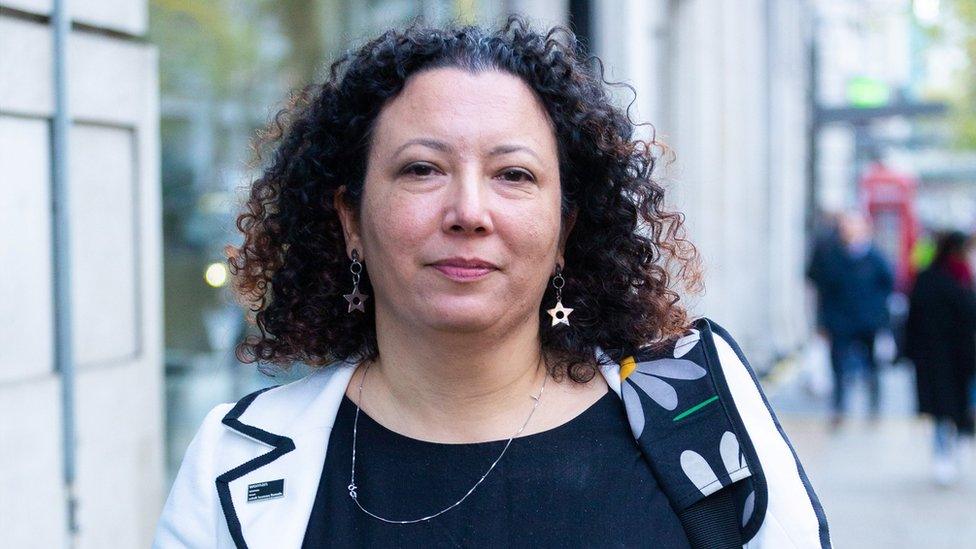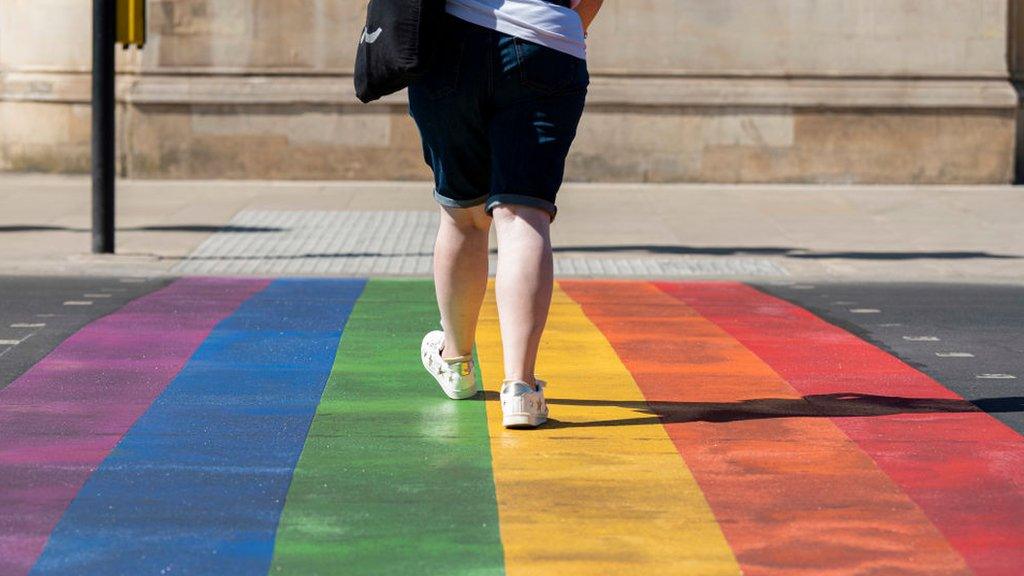Maya Forstater: Woman discriminated against over trans tweets, tribunal rules
- Published

A woman who said people cannot change their biological sex was discriminated against by her employers, an employment tribunal has ruled.
Tax expert Maya Forstater did not have her contract renewed after posting a series of tweets about gender and sex.
In 2019, a tribunal judge decided such views were not "worthy of respect in a democratic society".
But in a 2021 appeal another judge ruled "gender-critical" views were protected under the Equality Act 2010.
The judge ordered a fresh tribunal, which published its ruling on Wednesday.
Employment judge Andrew Glennie found the decision not to offer Ms Forstater an employment contract nor renew her unpaid visiting fellowship role at the think tank Center for Global Development in March 2019 was direct discrimination related to her "gender-critical" beliefs.
Ms Forstater, from St Albans in Hertfordshire, believes biological sex is immutable and not to be conflated with gender identity.
Judge Glennie said her complaint she was victimised after being removed from a company website was "well founded".
Ms Forstater welcomed the outcome.
She said in a statement: "My case matters for everyone who believes in the importance of truth and free speech.
"We are all free to believe whatever we wish. What we are not free to do is compel others to believe the same thing, to silence those who disagree with us or to force others to deny reality."
Amanda Glassman, the chief executive of the Center for Global Development, said the organisation was reviewing the judgment.
She said the think tank's "primary aim has always been to uphold our values and maintain a workplace and an environment that is welcoming, safe, and inclusive to all, including trans people".


This is the latest development in what has become a hugely contentious discussion about trans rights and the language used in conversations that often happen in the very public space of social media.
The ruling sends out a signal that employers and organisations should think carefully when deciding how to treat staff, contracted or otherwise, based on their views about sex-based rights and gender identity.
This and last year's decision that "gender-critical" beliefs are protected under the Equality Act indicate that even if a person's perspective is deemed controversial by some it could be discriminatory to penalise them for having it.
The fact a judge in 2019 had a very different outlook on this matter shows how divisive it is, even in the courts.
What is less clear though is how the discussion can move forwards when there continue to be such strong opinions on sex and gender-based rights from different directions. Many of these no doubt will have the potential to cause offence to someone else and the moment when that line could be crossed is still a grey area.

Ms Forstater's case previously gained public attention, including attracting some high-profile supporters, such as Harry Potter author JK Rowling.
After the ruling, Rowling tweeted, external: "Every woman who's been harassed, silenced, bullied or lost employment because of her gender critical beliefs is freer and safer today, thanks to the warrior that is [Maya Forstater]."
Other complaints of direct discrimination on the basis of belief; victimisation over a withdrawal of an offer to engage her as a consultant; and harassment and indirect discrimination over sex and belief were dismissed. Ms Forstater's solicitor said on Twitter, external the successful direct discrimination claims were also pleaded alternatively as harassment and said his client could not have won both.

FROM ISHTAR TO CATS: Ellen E Jones and Mark Kermode talk big box office flops
'MY NAME'S BRIAN AND I'M A DEPRESSIVE': Queen guitarist Brian May on living with depression

Related topics
- Published19 December 2019

- Published16 May 2024
